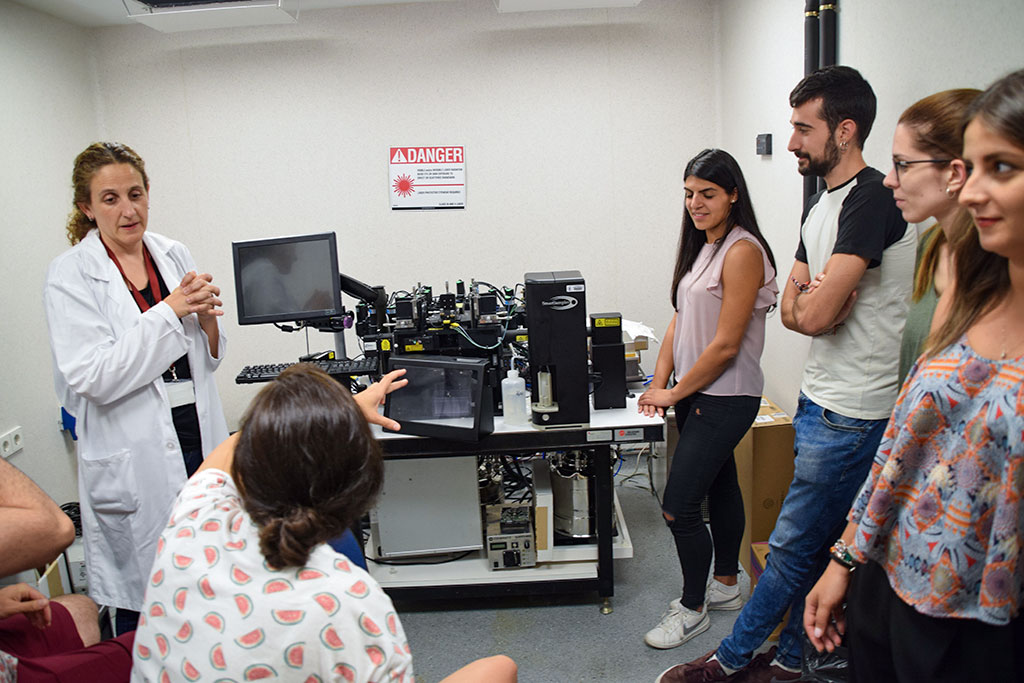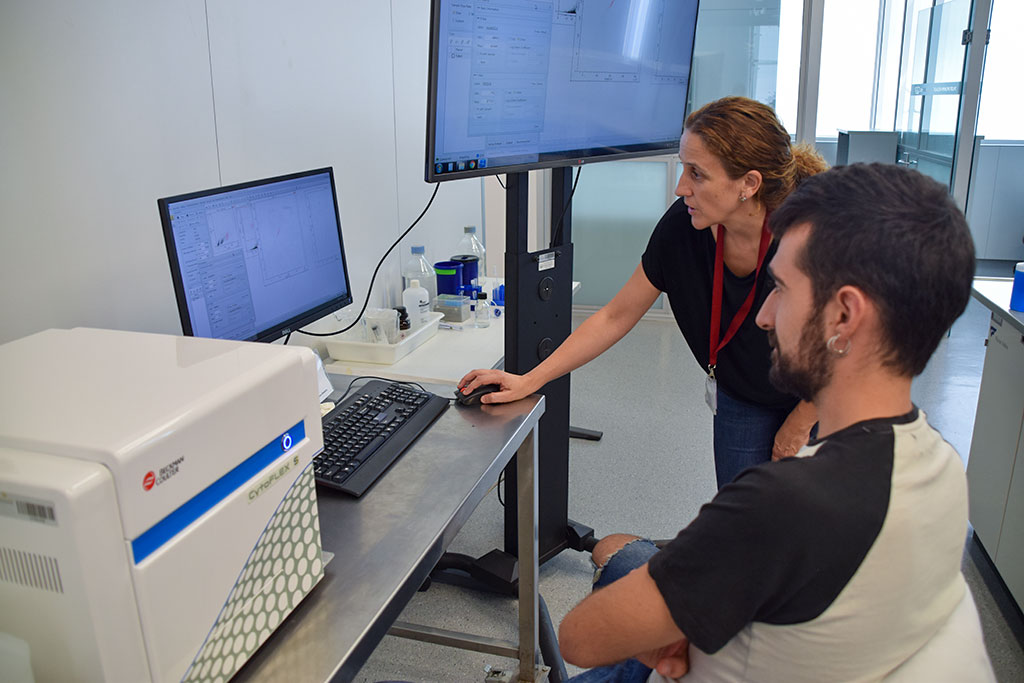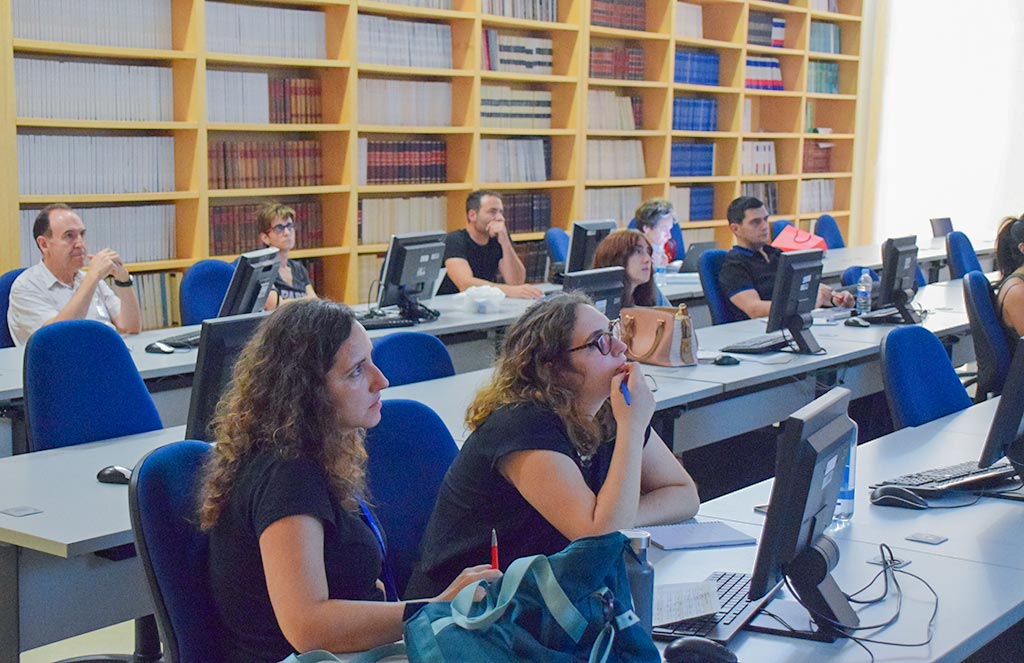


Theoretical-Practical Blended Workshop
INTRODUCTION TO FLOW CYTOMETRY
SEPTEMBER 9 - NOVEMBER 22 2024. 1st EDITION
PENDING ACCREDITATION BY THE COMMISSION ON CONTINUING EDUCATION FOR THE HEALTH PROFESSIONS.
IN PERSON FROM 18 TO 22 NOVEMBER, FROM 15:00 TO 19:00 AT CIPF
INTENDED FOR
Superior Technicians of Clinical Analysis and Pathological Anatomy.
Graduates in Medicine, Pharmacy, Biology, Chemistry, Biochemistry, Biotechnology, Veterinary Medicine, Nursing or another CC degree. of Health, CC. Environmental or related (environmental or related CC graduates will not receive accreditation, since they are not contemplated within the accrediting regime of the Commission for Continuing Education for Health Professions).
Last-year students (Without Accreditation from the Commission for Continuing Training of Health Professions).
WORKSHOP DESCRIPTION
Flow cytometry is a technology that allows comprehensive analysis and separation of individual cells at a very high speed. Due to its importance in the Immuno-hematological and Oncological clinic, as well as its multiple applications in basic, biotechnological and environmental research, the flow cytometry laboratory represents an area with many job opportunities.
Knowledge of the basic principles of cytometric techniques and familiarization of the user with the critical points of their practical application are essential for the correct use of cytometry in the basic and clinical setting. For this reason, the Workshop proposes a systematic and integrated training strategy, aimed at giving cytometry users sufficient training to know and properly handle the instruments, to design and optimize cytometric experiments and to correctly handle and interpret the results obtained.
OBJECTIVE
The general objective of the Workshop is to give students specialized knowledge in flow cytometry that will include the correct handling of cytometers, sample preparation, design and application of cytometric analysis procedures, data acquisition and management. and the interpretation of the results.
STUDENT ASSESSMENT
To obtain the Certified Diploma, students will take a test exam with 50 questions valued at 0 or 1 point. For each question, there is only one correct answer. Each wrong answer subtracts 0.25 points. Minimum requirement: Qualification of 25/50 points (50% of the maximum qualification). The same exam will be carried out at the beginning and after finishing the Workshop, to check the use and progress of the students.
THEORETICAL-PRACTICAL PROGRAM
1. INTRODUCTION AND FUNDAMENTALS OF FLOW CYTOMETRY:
Technical basis of flow cytometry. Components, systems and operation of the flow cytometer. Fluorescence and fluorescent markers.
2. PREANALYTICAL PHASE:
Sample preparation. Selection of reagents. Laboratory practice.
3. ANALYTICAL PHASE:
Data acquisition with the cytometer’s own software. Selection of populations. Data analysis. Laboratory practices.
4. DESIGN AND OPTIMISATION OF EXPERIMENTS IN CYTOMETRY:
Design of protocols and specialised panels. Cytometry resources on the Internet. Laboratory practices.
5. QUALITY CONTROL AND BIOSAFETY IN CYTOMETRY:
Switching the cytometer on and off. Cleaning and maintenance of the cytometer. Self-standardisation and quality control. Safety procedures. Laboratory practice.
FEES
Graduates and active technicians: 350€
Personnel Unemployment and Students : 300€* * With the corresponding certificate.
The fees include workshop teaching materials, exam fees and Diploma.
PRE-REGISTRATION AND ADDITIONAL INFORMATION
Flow Cytometry, Principe Felipe Research Center: citomica@cipf.es
Cytomics Laboratory, University of Valencia: jose.e.oconnor@uv.es
REGISTRATION
The Workshop is limited to 15 places.
Admission will be done in strict order of pre-registration.
A waiting list will be established to assign possible vacancies.
Coordinators:
Alicia Martínez Romero
José Enrique O’Connor
Teachers:
Guadalupe Herrera Martín
Beatriz Jávega Martínez
Domingo Gil-Casanova

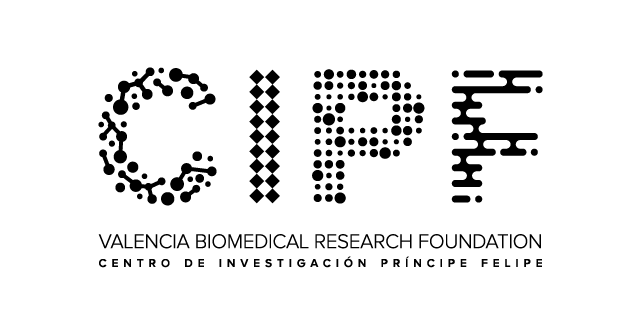
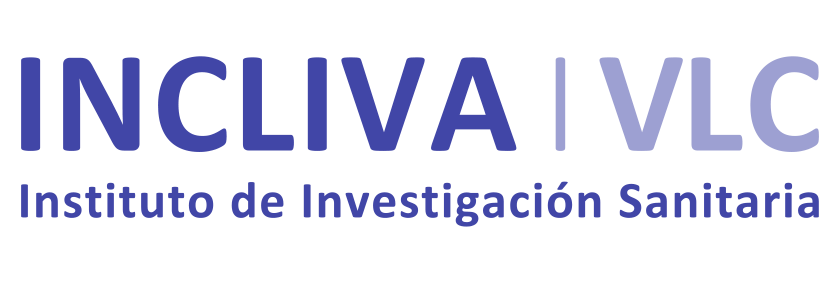

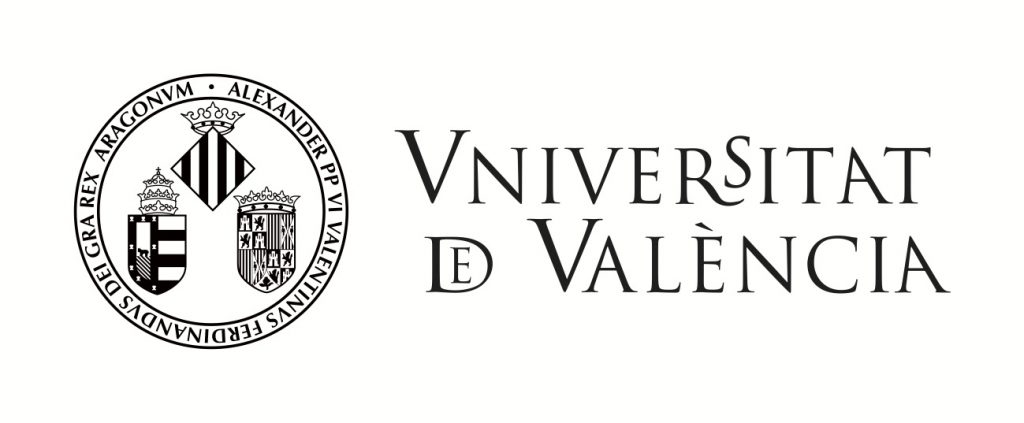

Theoretical-Practical Blended Workshop
APPLICATIONS OF FLOW CYTOMETRY
OCTOBER 14 - DECEMBER 13 2024. 1st EDITION
PENDING ACCREDITATION BY THE COMMISSION ON CONTINUING EDUCATION FOR THE HEALTH PROFESSIONS.
IN PERSON FROM 9 TO 13 DECEMBER, FROM 15:00 TO 19:00 AT CIPF
INTENDED FOR
- Superior Technicians of Clinical Analysis and Pathological Anatomy.
- Graduates in Medicine, Pharmacy, Biology, Chemistry, Biochemistry, Biotechnology, Veterinary Medicine, Nursing or another CC degree. of Health, CC. Environmental or related (environmental or related CC graduates will not receive accreditation, since they are not contemplated within the accrediting regime of the Commission for Continuing Education for Health Professions).
- Last-year students (Without Accreditation from the Commission for Continuing Training of Health Professions).
WORKSHOP DESCRIPTION
Flow cytometry is a complex and powerful tool for cell analysis, essential in many aspects of clinical and research interest. For the correct implementation of cytometry in the field of clinical and translational research, in addition to having the technical skills, it is necessary to know the applications of flow cytometry in this field. This workshop reviews the technical knowledge of flow cytometry, already covered in the blended workshop “Introduction to flow cytometry”, with emphasis on the critical points of this technology. In addition, the applications that can be developed in the field of cell biology, biotechnology and drug discovery, environmental sciences, biomedicine, clinical and translational research will be discussed. For this reason, this workshop is of particular relevance, as it will deal with various applications, from a theoretical and practical point of view, analysing the critical points of each one of them, and showing how to carry out good practices for the implementation and development of these applications in the clinical and translational research fields.
STUDENT ASSESSMENT
To obtain the Certified Diploma, students will take a test exam with 50 questions valued at 0 or 1 point. For each question, there is only one correct answer. Each wrong answer subtracts 0.25 points. Minimum requirement: Qualification of 25/50 points (50% of the maximum qualification). The same exam will be carried out at the beginning and after finishing the Workshop, to check the use and progress of the students.
THEORETICAL-PRACTICAL PROGRAM
1. FUNDAMENTALS OF FLOW CYTOMETRY:
Technical bases of flow cytometry. Pre-analytical and analytical phase. Design and optimisation of experiments in flow cytometry.
2. APPLICATIONS IN CELL AND MOLECULAR BIOLOGY:
Overview of applications in cell and molecular biology. Design and optimisation of experiments. Laboratory practice. Analysis of results.
3. APPLICATIONS IN BIOTECHNOLOGY AND DRUG DISCOVERY:
Overview of applications in biotechnology and drug discovery. Design and optimisation of experiments. Laboratory practice. Analysis of results.
4. ENVIRONMENTAL APPLICATIONS:
Panorámica de aplicaciones en medio ambiente. Diseño y optimización de experimentos. Prácticas de laboratorio. Análisis de resultados.
5. APPLICATIONS IN TRANSLATIONAL RESEARCH AND CLINICAL MEDICINE:
Overview of applications in translational research and clinical medicine. Design and optimisation of experiments. Laboratory practice. Analysis of results.
FEES
Graduates and active technicians: 350€
Personnel Unemployment and Students : 300€* * With the corresponding certificate.
The fees include workshop teaching materials, exam fees and Diploma.
PRE-REGISTRATION AND ADDITIONAL INFORMATION
Flow Cytometry, Principe Felipe Research Center: citomica@cipf.es
Cytomics Laboratory, University of Valencia: jose.e.oconnor@uv.es
REGISTRATION
The Workshop is limited to 15 places.
Admission will be done in strict order of pre-registration.
A waiting list will be established to assign possible vacancies.
Coordinators:
Alicia Martínez Romero
José Enrique O’Connor
Teachers:
Guadalupe Herrera Martín
Beatriz Jávega Martínez
Domingo Gil-Casanova






